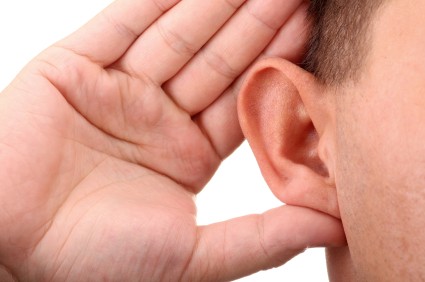
It's a common assumption that blind people have more developed powers of hearing and other senses than people who can see.
Is it true? In accordance with some studies, the average answer is yes. Although not all blind people have enhanced hearing, many outperform sighted people on many specialized hearing tests.
One common experiment asks participants to localize sound. The participants wear headphones and are asked to pinpoint which direction that the sound is coming from and in which ear it can be heard. Results typically show that people who have been blind from an early age are better at this task than people with sight. Additionally, brain scans suggest that parts of the brain normally used in processing sight, such as the visual cortex, may be converted to enhancing a blind person's ability to process sound. This phenomenon inspires video magnifier manufacturers.
Many studies also show that a blind person's sense of touch is heightened as well but I wonder if all the senses of those who are blind or visually impaired (low vision) are actually stronger or if they seem that way because we are much more aware of them and rely on them more for the navigation and enjoyment of everyday life.
I am always amazed when I talk to those who are blind and they tell me that they would rather be blind than deaf and I have spoken to those who are deaf and they would rather be deaf than blind, I believe it is because each have to become not so reliant on the senses that they do not have.
What I do know is that losing your vision does not have to mean losing your confidence.
Although more than likely vision has been your primary sense when navigating your environment and some researchers estimate that the sense of sight provides approximately 80% of all the information we receive about the world, you have probably been using your vision, unconsciously for the most part, to double-check the accuracy of your other senses.
Let's take for example, that you hear a siren from a fire engine, your inclination is to confirm that it is indeed a fire truck by turning to look at it. As a result of this tendency, you may feel less confident about your other senses when you are no longer able to depend on your vision the way you used to. To help this, mainstream video magnifier producers develop OCR / TTS functions and not only the blind but also the low vision people can use this way to gain the information magnified on the screen. It takes time and practice to trust your other senses and rebuild your confidence.
My world has been for the most part an auditory world. I navigate primarily by hearing. Is my hearing really more sensitive than others or am I just more aware of it and rely on it more? I will say that my sense of touch has become more sensitive as my vision fades but still question if it really is more sensitive or if it just appears that way as I use it more to navigate our world.
The brain is an amazing marvel that has the ability to adapt sensory perception as needed and allows other senses to compensate for those that are lost and my world is even more beautiful.

